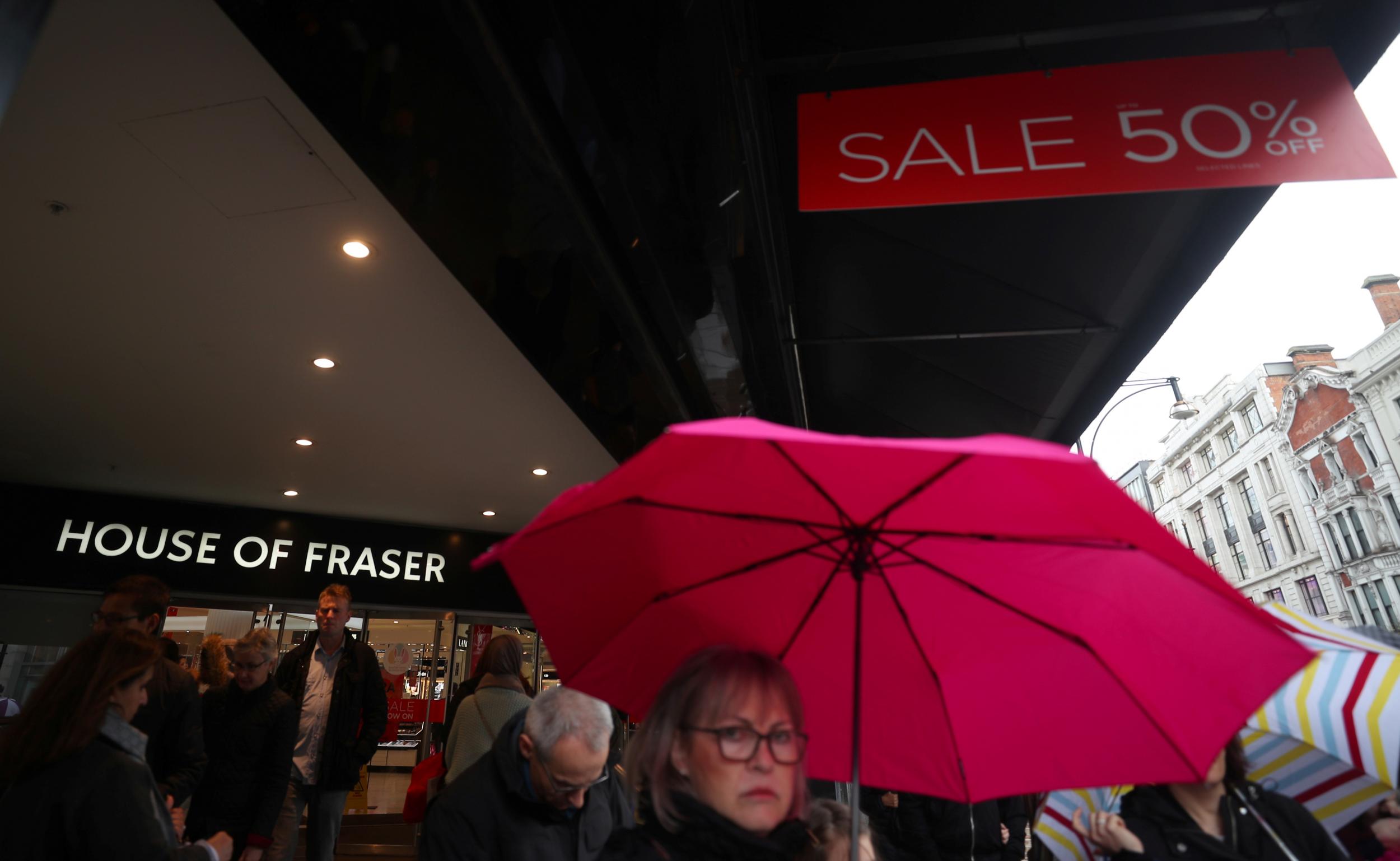House of Fraser rescue plan approved despite landlords' justified anger
With 6,000 jobs set to go it's understandable that sympathy for property owners is hard to find. But they have good reason to be unhappy in this case amid mounting controversy about the way retailers in financial difficulties are using company voluntary arrangements to close stores

Your support helps us to tell the story
From reproductive rights to climate change to Big Tech, The Independent is on the ground when the story is developing. Whether it's investigating the financials of Elon Musk's pro-Trump PAC or producing our latest documentary, 'The A Word', which shines a light on the American women fighting for reproductive rights, we know how important it is to parse out the facts from the messaging.
At such a critical moment in US history, we need reporters on the ground. Your donation allows us to keep sending journalists to speak to both sides of the story.
The Independent is trusted by Americans across the entire political spectrum. And unlike many other quality news outlets, we choose not to lock Americans out of our reporting and analysis with paywalls. We believe quality journalism should be available to everyone, paid for by those who can afford it.
Your support makes all the difference.The House of Fraser (HoF) rescue plan, which will see more than half its stores closed at a cost of 6,000 jobs, and ten of those that remain paying a lot less rent, may be the straw that has broken the camel’s back for landlords.
Company Voluntary Arrangements, like the one the retailer has had approved, are a form of insolvency that allows struggling companies to restructure their debts. They have proved highly popular with a growing number of the High Street’s problem children, to the consternation of their landlords. They grouse that they’re being misused as a means of putting the squeeze on them.
The HoF plan has got them particularly exercised. For a start, HoF's Chinese owner Nanjing Cenbest is selling a 51 per cent stake to Hamleys owner C Banner. It is set to invest £70m in the business, which ought to be good news for the landlords that remain. But it is also paying £70m to Nanjing. A business’s shareholders, its owners, are supposed to come last in the insolvency pecking order but that's not the case here.
Some landlords are also unhappy with technical aspects of the plan, and feel that they have had little power to influence it.
For a CVA to go through, it has to be backed by 75 per cent of a company’s creditors by value. But landlords' claims against an insolvent company are heavily discounted, based on the likelihood of their being able to re-let their property and thus generate income from it. After that a further 75 per cent is knocked off the top. So even if they object to a CVA, they face a tough task in blocking one, given that other creditors, with more voting power, may be more likely to say yes.
While the hardest hit from the HoF situation, and the most deserving of sympathy, are the 6,000 people who will need to find new jobs, it is worth noting that commercial property is often owned by pension funds, which rely on rental income to support payments to their members. It wasn’t that long ago that retailers, including some of those currently struggling, were beating a path to their doors to do sale and leaseback deals with them. They are thus often the authors of their own misfortunes when it comes to rising rent bills.
Landlords, who have a 28 day window to decide whether to legally challenge the plan, are not alone in seeing problems with CVAs. R3, a trade body for insolvency practitioners, also says they need a shake up. It wants to see standardised terms and conditions, and directors mandated to address financial difficulties at their businesses at an earlier stage, among other reforms.
When it looked at the progress of the CVAs taken out in 2013, it found a high failure rate, with less than one in five being fully implemented. Of course, part of the reason is that the companies that take them out are, by definition, struggling.
The hard fact facing all those involved with House of Fraser is that regardless of whether the CVA it has secured is challenged or not, there remains a high risk of it failing. Life on the High Street isn’t going to get any easier, and Britain has a Government that is determined to drive the country off an economic cliff. We could very easily be here again in short order.
Join our commenting forum
Join thought-provoking conversations, follow other Independent readers and see their replies
Comments